
Woman Loses 75 Pounds So Doctors Would Stop Blaming Her Symptoms On Weight And Finally Give Her A Diagnosis
As if going to doctors wasn’t stressful enough already, some people are struggling particularly hard to get their health complaints heard by the doctors. An anonymous 5’6″ woman had to lose weight, going from 210 lbs all the way to 135, simply to be sufficiently diagnosed and cared for.
“It took me a year to lose it all, but what finally pushed me to lose the weight was because every single thing I went to a doctor for, it got blamed on my weight,” the woman wrote in a lengthy post on Reddit where she shared how doctors assumed her weight was to blame for severe cramps, sleepiness, numbness, memory and balance problems, and other alarming symptoms.
The thread which amassed 49.2k upvotes resonated with many people online, who said insufficient diagnostic and delayed care due to health professionals assuming that weight is to blame for patients’ ill health is really a thing. Let’s see what others had to share in the illuminating thread below and be sure to share your own experiences in the comment section.
An anonymous woman shared how she lost 75 pounds after doctors blamed her weight for her alarming symptoms
Image credits: CCFoodTravel.com (not the actual photo)
Seeing a doctor is not necessarily a fun thing to do, but it’s not supposed to be fear-inducing. But for the heavier patients, interaction with the healthcare system may be truly daunting.
This is because, according to Kimberly Gudzune, an assistant professor of medicine at the Johns Hopkins School of Medicine in Baltimore, “physicians often hold negative attitudes, both explicit and implicit, about people with excess weight.”
Image credits: YukiBean
Also known as “weight bias,” it can be a real threat to patients who do not get sufficient care and diagnosis, and it can lead to significant treatment delays. Such delays often spiral out of control and may bring additional health consequences that otherwise could be avoided if diagnosed at the right time.
Her post sparked a heated debate and one person identified the case as “diagnostic overshadowing”
While others felt like sharing their similar experiences
Dr. Gudzune ran a study to determine whether clinicians treat their patients differently based on visible factors and the results confirmed it. “As soon as a provider walks in the door, we’re automatically making judgments about who you are as a person,” she said.
Visible traits include weight, age, and race. “Visual bias” influences the way clinicians treat particular patients, e.g. “great respect for older patients; lower positive affect and more verbal dominance with black vs. white patients,” Gudzune explained.
However, when it comes to the weight bias, the problem is particularly daunting because the conditions of excess weight and obesity affect more than two thirds of American adults. “[With] the magnitude of the effect of obesity in our country, a substantial number of people are experiencing health care disparities as a result,” she said.
Astonishingly, the studies have shown that clinicians tend to associate obesity with a range of negative attributes like poor hygiene, dishonesty, hostility etc. Dr. Gudzune called such attitudes “pervasive” and added that it’s not just the US that’s been affected by it. Physicians across the world have been spotted having similar attitudes that persist today.
If a physician is employing a weight-biased attitude towards the patient, it can be harder to make counseling effective, and it’s likely to lack emotional connection.
In addition, “with patients who are overweight and obese, physicians engage in significantly less rapport-building, especially of an emotional nature (e.g., empathy, concern, reassurance, partnership, self-disclosure),” suggested Dr. Gudzune.
Weight bias is a real problem in the health industry and there’s an urgent need to design and employ ways to mitigate it in the clinical setting.
Other people commented on ways to deal with being mistreated by doctors
While some doctors felt apologetic for the woman
Understanding the challenges that people face with weight and health, it’s important to recognize the value of balanced nutrition and personalized fitness routines.
For a deeper look at how targeted dietary adjustments and consistent exercise can transform health outcomes, consider exploring insights from strategies used in effective weight management.
Reading this is sad. I am so grateful to have found a good Dr. Yes I am obese, yes I need to lose weight (and I am trying) but he never dismisses any of my health concerns.
I had unexplained weight gain which kept going even as I kept cutting back what I was eating and kept exercising more. The cutback would stall it, but then it'd start again. Whenever I would protest that I wasn't eating anything the doctor would just give me this little head tilt and look and be like, "Really?" and then tell me to stop eating fast food (which I hadn't eaten in years). Even after 10 years of this when I was down to 700 calories + 3 hours exercise (and still gaining weight!) they still assumed I was lying. My mom figured it out - I have celiac disease. Cut out the gluten, and the weight started magically melting away even as I was able to eat a normal amount of food.
I am not slender, a size 12 at 5'8". Yes, it would better if I lost weight. The last 4 times my mental health plummeted, I sought help and was told I MUST lose weight. This is after I tell them overeating is a coping method and a sign my mental health is failing and of my eating disorder. It is the worst thing to say. The power of words. I don't need a reminder of what some consider my biggest failure. In my family, weight = worth. If I am happy with myself, believe I have value, and am not feeling ashamed the weight could come off. I avoid having my picture taken. Whenever I see a picture I am shocked. Often I don't look as big as I am told, but remember how uncomfortable I felt, how ashamed I was to be to be out of control and irresponsible. I put effort into how I look, I try to care about it. Someone who has never had a weight problem can't understand how difficult this can be. My struggles are minor, my parents toxic. But if this what I face, imagine what others deal with.
Size 12 at 5'8" doesn't sound at all bad to be honest. Though you know you. So sorry for your struggles - been there myself.
Load More Replies...Reading this is sad. I am so grateful to have found a good Dr. Yes I am obese, yes I need to lose weight (and I am trying) but he never dismisses any of my health concerns.
I had unexplained weight gain which kept going even as I kept cutting back what I was eating and kept exercising more. The cutback would stall it, but then it'd start again. Whenever I would protest that I wasn't eating anything the doctor would just give me this little head tilt and look and be like, "Really?" and then tell me to stop eating fast food (which I hadn't eaten in years). Even after 10 years of this when I was down to 700 calories + 3 hours exercise (and still gaining weight!) they still assumed I was lying. My mom figured it out - I have celiac disease. Cut out the gluten, and the weight started magically melting away even as I was able to eat a normal amount of food.
I am not slender, a size 12 at 5'8". Yes, it would better if I lost weight. The last 4 times my mental health plummeted, I sought help and was told I MUST lose weight. This is after I tell them overeating is a coping method and a sign my mental health is failing and of my eating disorder. It is the worst thing to say. The power of words. I don't need a reminder of what some consider my biggest failure. In my family, weight = worth. If I am happy with myself, believe I have value, and am not feeling ashamed the weight could come off. I avoid having my picture taken. Whenever I see a picture I am shocked. Often I don't look as big as I am told, but remember how uncomfortable I felt, how ashamed I was to be to be out of control and irresponsible. I put effort into how I look, I try to care about it. Someone who has never had a weight problem can't understand how difficult this can be. My struggles are minor, my parents toxic. But if this what I face, imagine what others deal with.
Size 12 at 5'8" doesn't sound at all bad to be honest. Though you know you. So sorry for your struggles - been there myself.
Load More Replies...
 Dark Mode
Dark Mode 

 No fees, cancel anytime
No fees, cancel anytime 







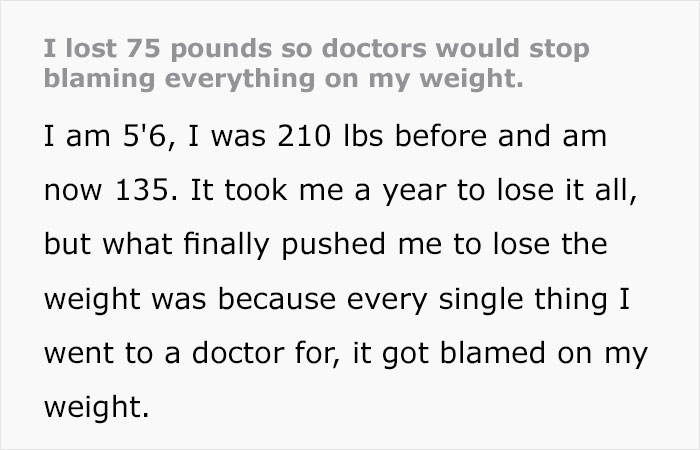
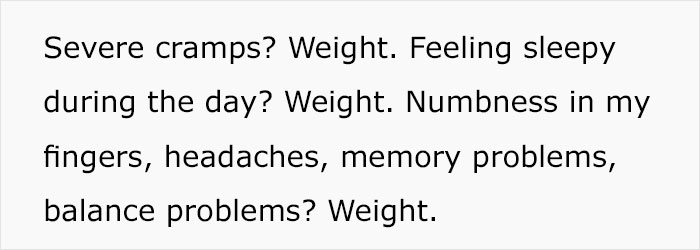
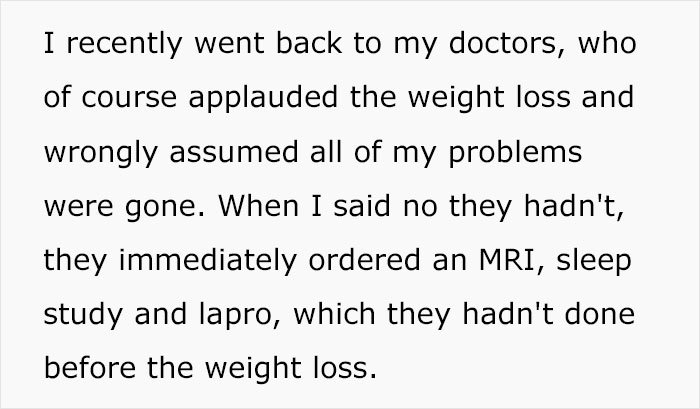
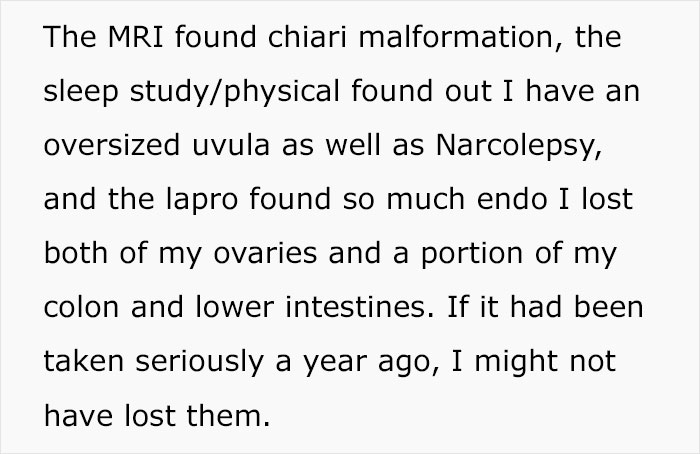


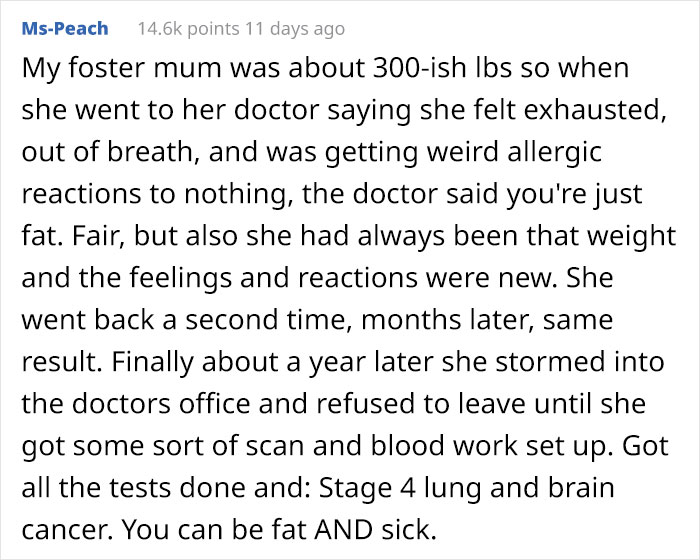
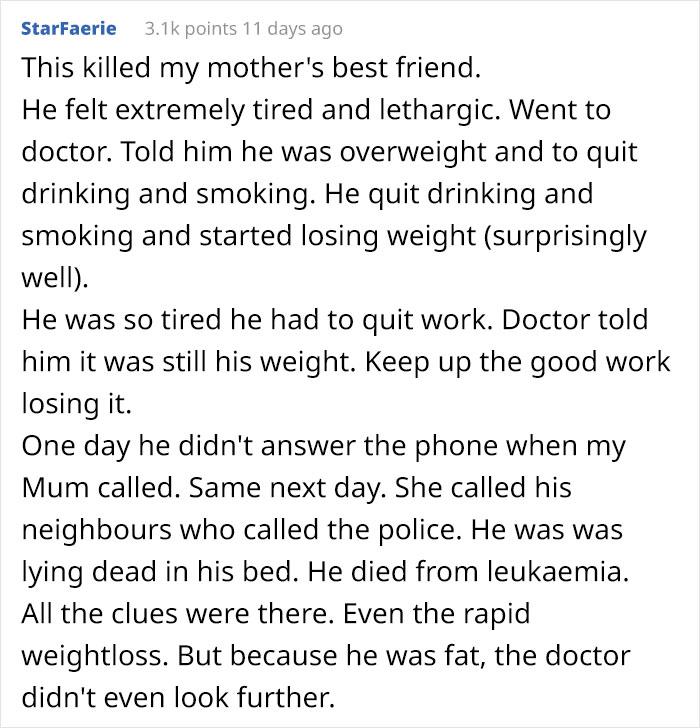

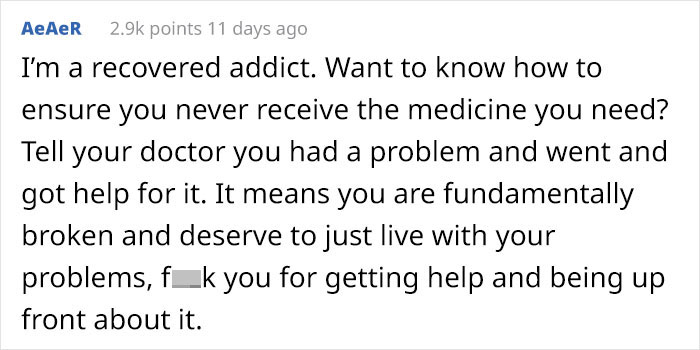
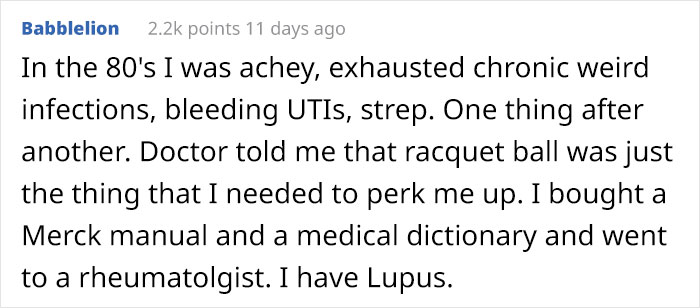
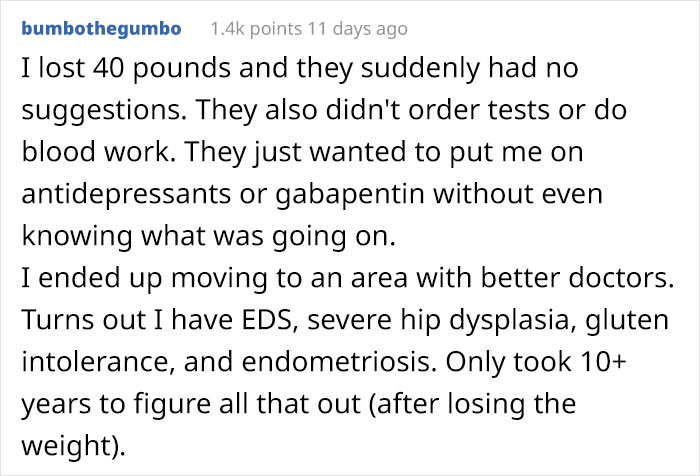
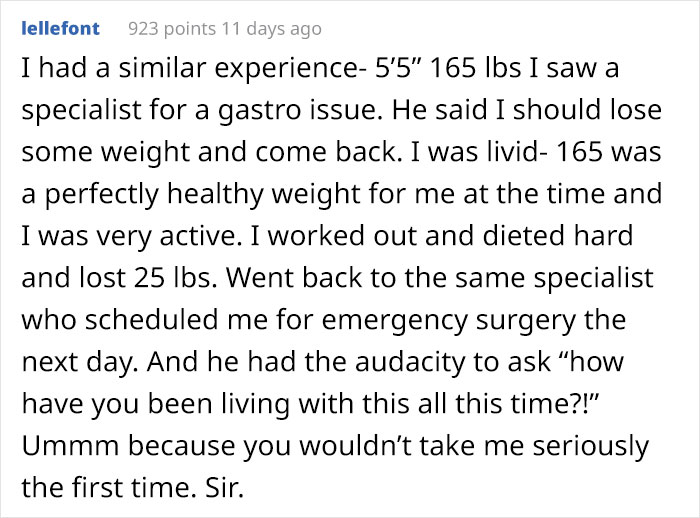
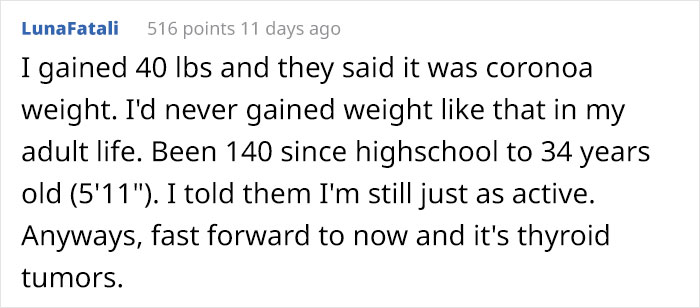
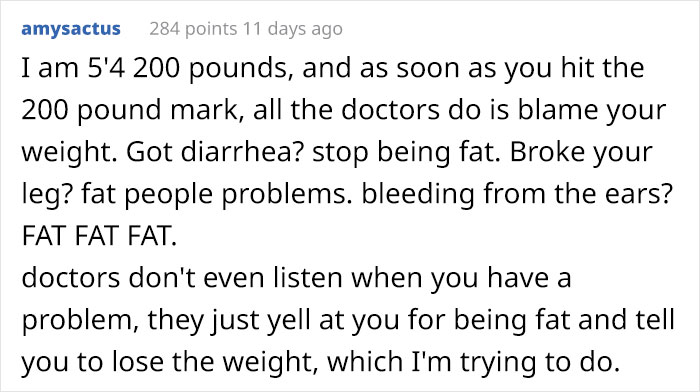
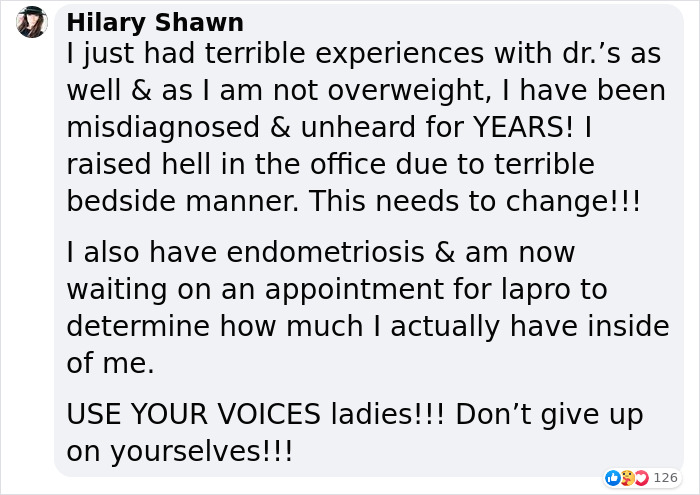
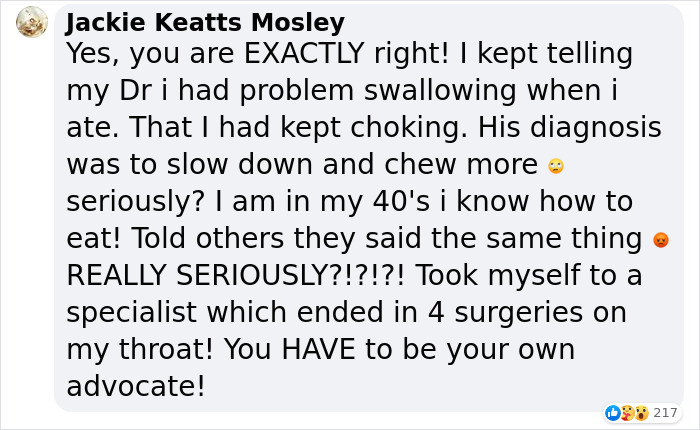
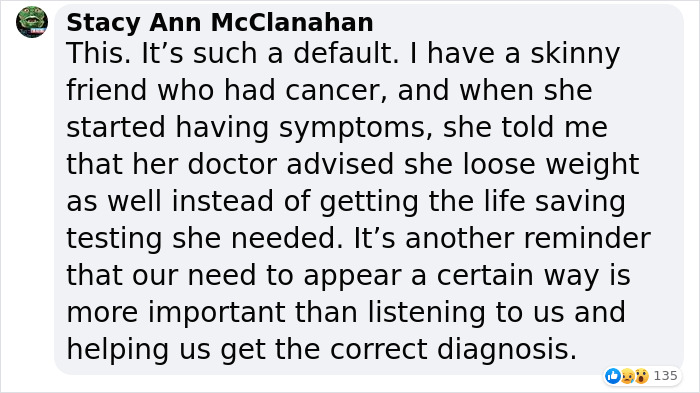
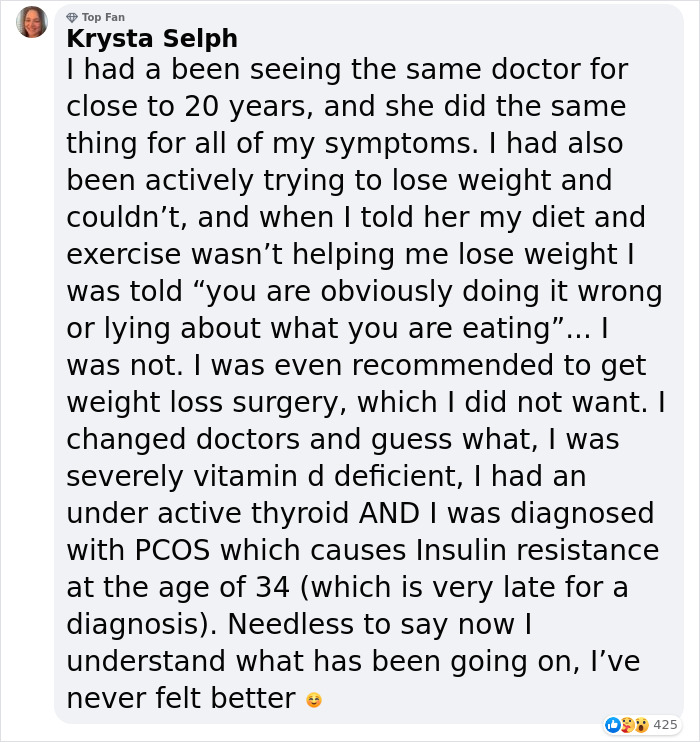
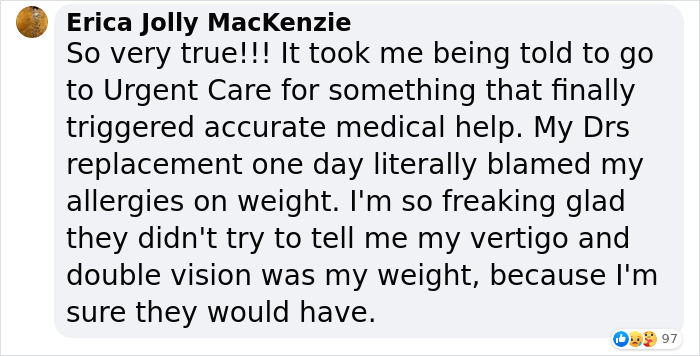


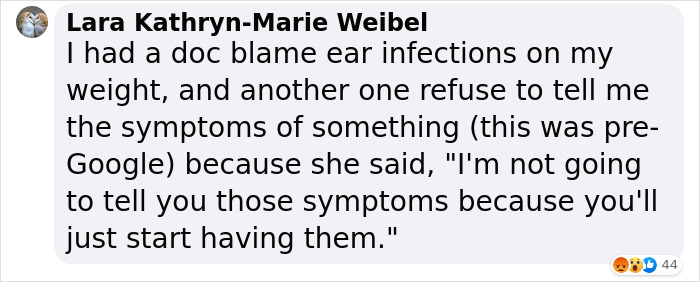

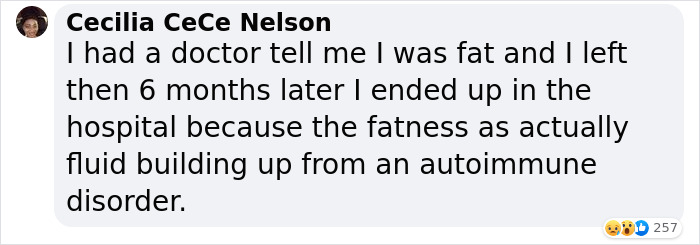
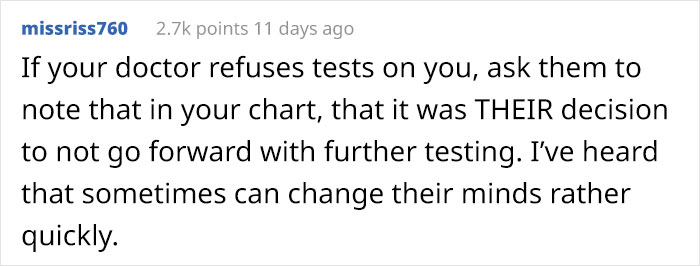
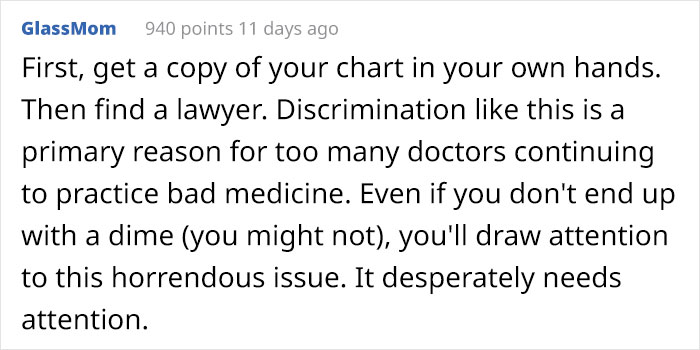
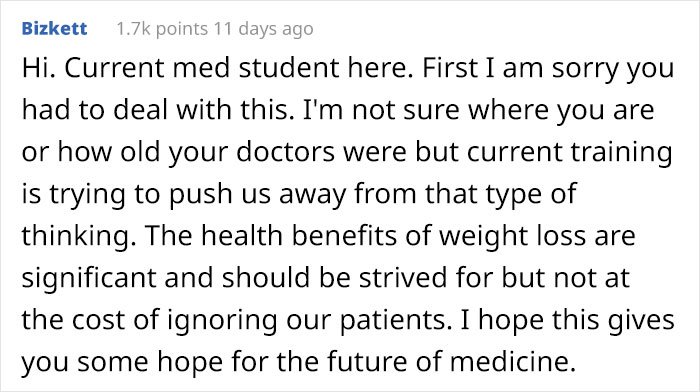













































230
196